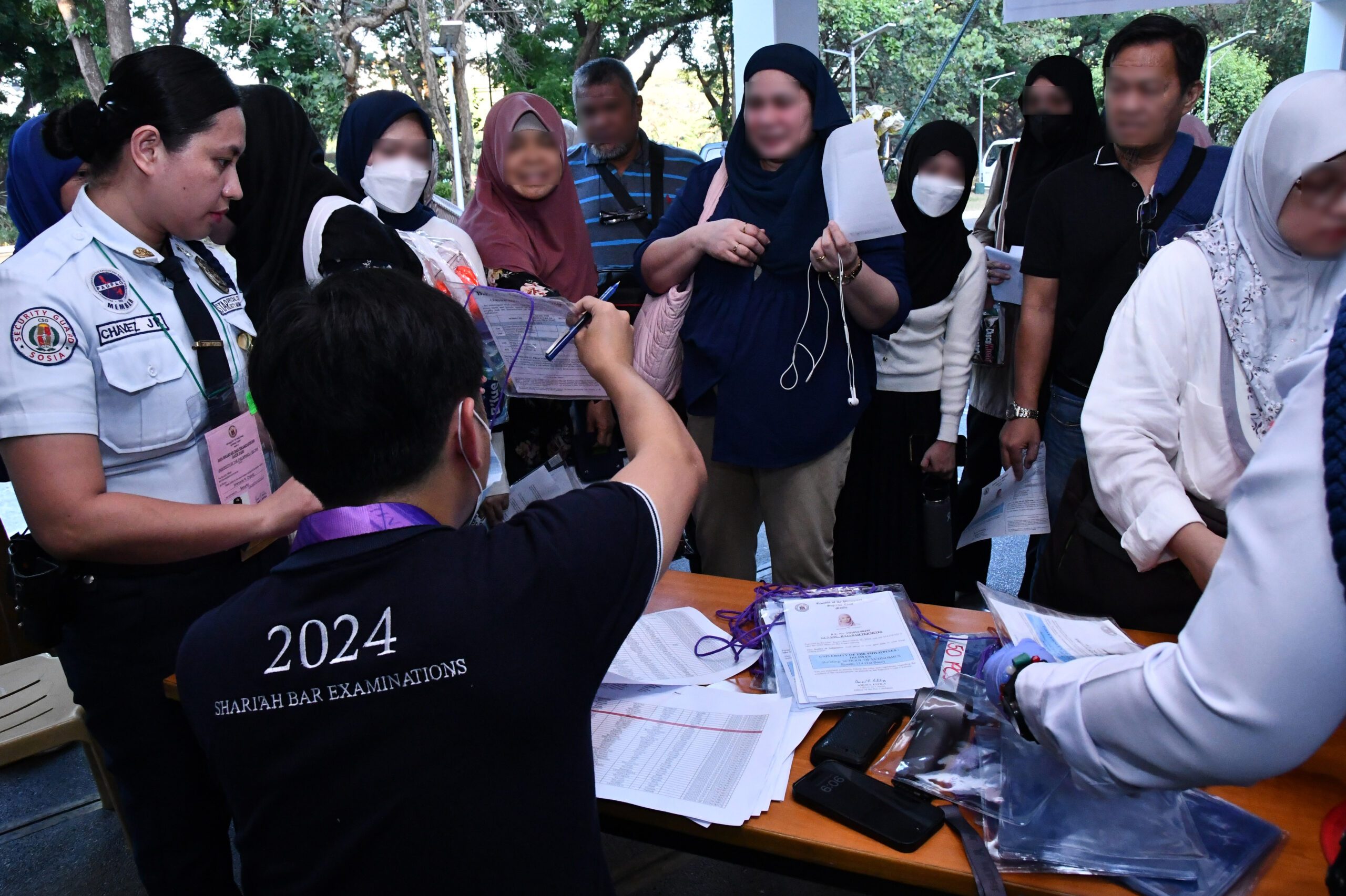SUMMARY
This is AI generated summarization, which may have errors. For context, always refer to the full article.

MANILA, Philippines – On April 28, the Supreme Court (SC) held the first digitalized and regionalized Shari’ah Bar Examinations.
Separate from the regular Bar Exams for aspiring lawyers, the Shari’ah Bar is the professional licensure examination covering Islamic law. The exams are now administered by the High Court.
A total of 853 examinees finished the exams, with majority of aspiring Shari’ah counselors-at-law taking the test at Ateneo de Davao University (ADDU). The High Court said this year’s number of Shari’ah Bar examinees is higher compared to 2022, when there were only 526 takers.
This year’s exams, chaired by Associate Justice Maria Filomena Singh, were held in local testing centers in Metro Manila: University of the Philippines (UP) Diliman, and one in Mindanao: ADDU. The exams took place on April 28 and May 2.
For the 2024 Shari’ah Bar, the subjects include jurisprudence (Figh) and customary laws (Adat) [15%], persons, family relations, and property [35%], succession, wills/adjudication, and settlement of estates [35%], and procedure in the Shari’ah Courts [15%].
Honoring Muslim laws
To become a lawyer under the Shari’ah system, a person must pass the Shari’ah Bar exams administered by the High Court. The first Shari’ah Bar was held in 1983.
In 1977, Presidential Decree No. 1083 created Shari’ah courts in the Philippine, under the SC’s administrative supervision.
Article 137 of the decree established Shari’ah District Courts and Shari’ah Circuit Courts to exercise powers and functions to uphold the Code of Muslim Personal Laws of the Philippines. The code’s aim is to recognize the legal system of Muslims in the country, codify Muslim personal laws, and provide “effective administration and enforcement of Muslim personal laws among Muslims.”
The code was in accordance with section 11, article XV of the 1987 Constitution, which states: “The State shall consider the customs, traditions, beliefs and interests of national cultural communities in the formulation and implementation of state policies.”
According to Associate Justice Antonio Kho Jr., the Shari’ah Bar chairperson next year, the SC recognizes and respects Shari’ah as Muslims’ way of life. He added that the High Court also respects how Shari’ah governs several aspects of Muslims’ life, including personal conduct, and family matters like marriage, inheritance, and business transactions.
Kho added that the Shari’ah justice system in the country “provides a legal framework for resolving disputes and upholding Islamic principles within the context of the country’s broader legal system.”
“This reflects the country‘s commitment to religious diversity and ensuring that Muslims can practice their faith and uphold their traditions while being citizens of the country,” the SC associate justice added.
Full of firsts
Associate Justice Singh said this year’s Shari’ah Bar exams were full of firsts.
Aside from being the first to be digitalized and regionalized, this year was also the first time the exams were chaired by a sitting member of the High Court.
The SC also held a Shari’ah training seminar in seven different venues across the Philippines. The said seminar is a requirement for those who will take the Shari’ah Bar exams. The High Court said it will now supervise the conduct of the seminars, along with the National Commission on Muslim Filipinos (NCMF).
For this year, the SC also allowed overseas Filipino workers from Saudi Arabia to join Shari’ah seminars and take the exams.
Singh also announced that the exams will now be held annually, instead of every other year. She explained that the Shari’ah Bar will be more frequent because the SC aims to “strengthen and make more accessible the Shari’ah justice system by encouraging and giving more opportunities to aspiring Shari’ah counselors to undertake such endeavor.” – Rappler.com
Add a comment
How does this make you feel?









There are no comments yet. Add your comment to start the conversation.